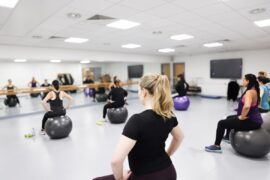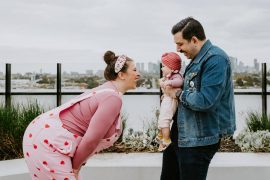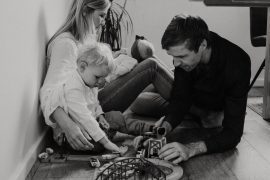By Belinda Haan
Each day we make big decisions and small decisions about how we choose to spend our time. We probably pay attention to the big decisions but how much weight do we give to the small decisions? All of our decisions about how we choose to spend our time can either help us move towards living the life we want or they can – sometimes quite unintentionally – send us in the opposite direction. Here’s a recent example from my life.
I attended a four-day meditation and yoga retreat which ended with me driving my husband’s car into a massive rock (not the result I envisaged when I booked the retreat). Why did this happen? I was rushing. But how could I be rushing? I had literally been in the child’s pose for four days relaxing! It all started the day before…
A fellow participant needed a lift to the airport. “Don’t worry!” I said. “I live only 15 minutes from the airport! I’ll drop you there!” Here’s where it all came undone. Why did I offer? I wanted to help this lovely woman I’d just met that weekend :)
This small decision to offer a lift had many consequences, including:
- Causing damage to our car
- Having to ask a friend to go out of her way to pick up my daughter as I wouldn’t make school pick-up in time (because the retreat ran over time and, of course, I had to go to the airport!)
- Being late for a medical appointment for my son
- Losing my zen way earlier than expected!
At that moment, with that woman, I wanted to help her. That was a good thing to do, right?
What I failed to see at the time was that by offering to give this relative stranger a lift to the airport, I was also saying NO to things that were more important.
I was saying…no to quality time with my kids, no to my friend’s afternoon plans, no to a peaceful re-entry to reality, and no to money!
The above is a dramatic example. However, I see time and time again, both with clients and me, that we forget that we can choose how to spend our time.
And every decision we make about how to spend our time is traded off against something else we could be doing.
Perhaps that thing that we say yes to means we are saying no to something far more essential and valuable to us.
In the book, Essentialism by Greg McKeown, he suggests an approach that will allow you to do the right thing, for the right reason, at the right time. The steps he suggests are:
1. Explore and Evaluate “Discerning the Trivial Many from the Vital Few”
Is what I am saying yes to contributing to my goals and values?
Are the micro decisions on how I am spending my time aligned to what I know is best for me?
If I was living my life without regrets, how would I spend my time?











